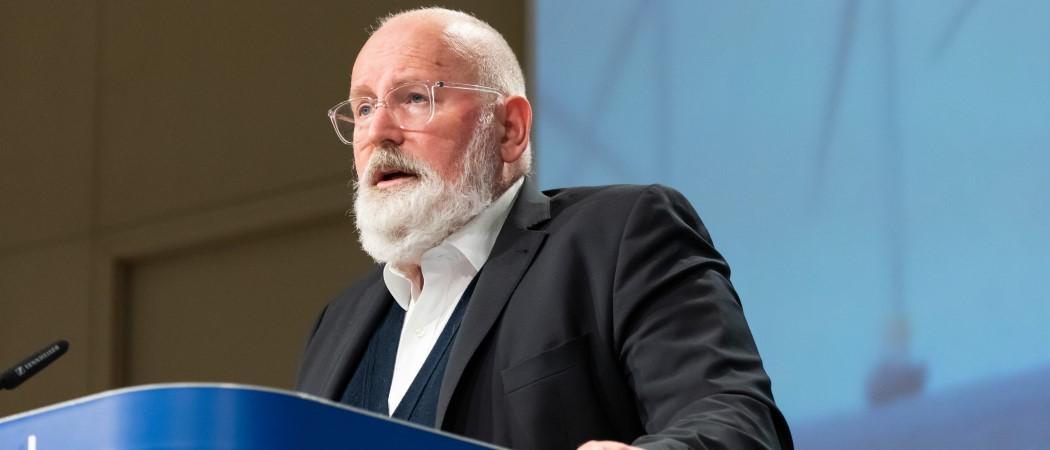The EU sets out research plan for switch to more sustainable farming and preservation of biodiversity, as one route out of the COVID-19 recession

Frans Timmermans, executive vice-president for the European Green Deal, during the press conference for the EU Strategy on Offshore Renewable Energy. Photo: European Commission.
The European Commission is betting on investments in green farming technologies and biodiversity to set the EU economy on a growth curve out of the recession caused by the coronavirus pandemic, and has published the first details of its ‘Farm to Fork’ and ‘Biodiversity’ strategies, two of its major policies to put the economy on a greener, more sustainable footing.
“The coronavirus crisis has shown how vulnerable we all are, and how important it is to restore the balance between human activity and nature,” said Frans Timmermans EU’s executive vice-president for the European Green Deal. “These strategies are a crucial part of the great transition we are embarking upon.”
As part of the plan, the commission is to launch a Horizon 2020 call worth €1 billion for researchers working on priorities the EU has set in its Green Deal, the overarching policy that has the objective of making Europe the first carbon neutral continent by 2050.
Then, as of next year, another €10 billion will be available under the upcoming ninth framework programme, Horizon Europe, for projects on food, bioeconomy, natural resources, agriculture, fisheries, aquaculture and the environment.
Some of the Horizon Europe funding will be funnelled through a partnership for safe and sustainable food systems, which will help member states to work together on an EU-wide governance mechanism for research and innovation in sustainable agriculture.
Horizon Europe will also have a research mission focused on improving soil health, and a dedicated partnership on research, aiming to reduce use of pesticides and antimicrobial drugs in agriculture by 2030.
In addition, the commission has set a target of reducing the use of fertilisers by 30 per cent and turning 25 per cent of agricultural land over to organic farming.
Alongside the Horizon funding, the commission is planning to establish a ‘Biodiversity Partnership’ to translate scientific knowledge on ecosystems into policies, together with a ‘Knowledge Centre for Biodiversity’ which will have the objective of transforming at least 30 per cent of Europe's land and seas into protected areas.
The EU is planning to set aside money to bring broadband internet to all rural areas by 2025, opening the way to apply Europe’s satellite technology to boost precision farming and the use of artificial intelligence in sustainable food production.





 A unique international forum for public research organisations and companies to connect their external engagement with strategic interests around their R&D system.
A unique international forum for public research organisations and companies to connect their external engagement with strategic interests around their R&D system.